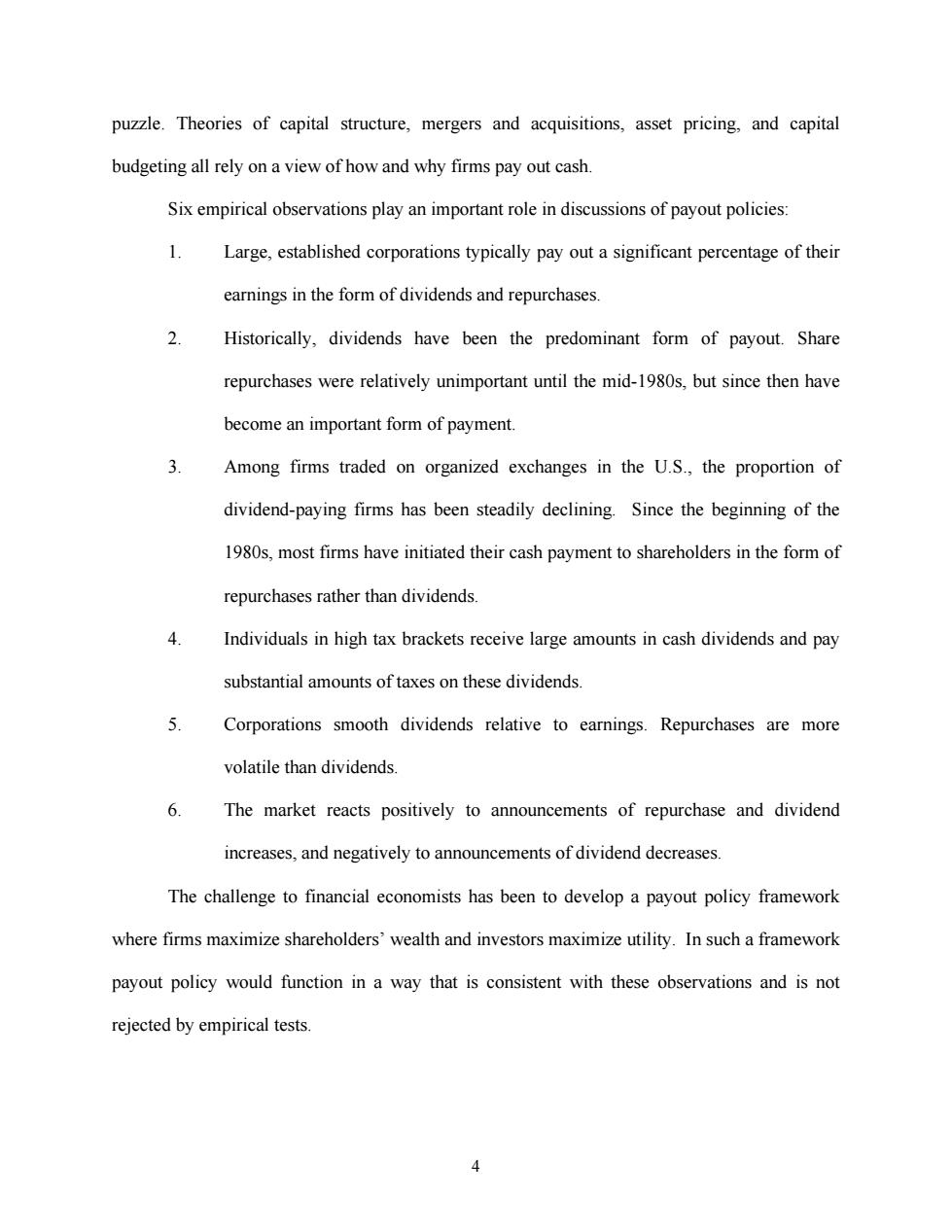正在加载图片...

puzzle.Theories of capital structure,mergers and acquisitions,asset pricing,and capital budgeting all rely on a view of how and why firms pay out cash. Six empirical observations play an important role in discussions of payout policies: 1. Large,established corporations typically pay out a significant percentage of their earnings in the form of dividends and repurchases. 2. Historically,dividends have been the predominant form of payout.Share repurchases were relatively unimportant until the mid-1980s,but since then have become an important form of payment. 3. Among firms traded on organized exchanges in the U.S.,the proportion of dividend-paying firms has been steadily declining.Since the beginning of the 1980s,most firms have initiated their cash payment to shareholders in the form of repurchases rather than dividends. 4. Individuals in high tax brackets receive large amounts in cash dividends and pay substantial amounts of taxes on these dividends. 5. Corporations smooth dividends relative to earnings.Repurchases are more volatile than dividends 6 The market reacts positively to announcements of repurchase and dividend increases,and negatively to announcements of dividend decreases. The challenge to financial economists has been to develop a payout policy framework where firms maximize shareholders'wealth and investors maximize utility.In such a framework payout policy would function in a way that is consistent with these observations and is not rejected by empirical tests.puzzle. Theories of capital structure, mergers and acquisitions, asset pricing, and capital budgeting all rely on a view of how and why firms pay out cash. Six empirical observations play an important role in discussions of payout policies: 1. Large, established corporations typically pay out a significant percentage of their earnings in the form of dividends and repurchases. 2. Historically, dividends have been the predominant form of payout. Share repurchases were relatively unimportant until the mid-1980s, but since then have become an important form of payment. 3. Among firms traded on organized exchanges in the U.S., the proportion of dividend-paying firms has been steadily declining. Since the beginning of the 1980s, most firms have initiated their cash payment to shareholders in the form of repurchases rather than dividends. 4. Individuals in high tax brackets receive large amounts in cash dividends and pay substantial amounts of taxes on these dividends. 5. Corporations smooth dividends relative to earnings. Repurchases are more volatile than dividends. 6. The market reacts positively to announcements of repurchase and dividend increases, and negatively to announcements of dividend decreases. The challenge to financial economists has been to develop a payout policy framework where firms maximize shareholders’ wealth and investors maximize utility. In such a framework payout policy would function in a way that is consistent with these observations and is not rejected by empirical tests. 4